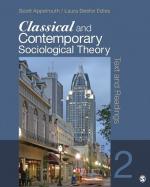|
This section contains 4,006 words (approx. 14 pages at 300 words per page) |

|
Used as a category to identify social scientific research that constructs or illustrates theory by careful attention to culturally, geographically, and temporally located facts, historical sociology (or, from the historian's vantage point, sociological history) exists as a self-conscious research orientation within both of its parent disciplines. Popular assertions in the 1950s and 1960s that history involved the study of particular facts while sociology involved the formulation of general hypotheses (see Franzosi and Mohr 1997, pp. 133–139 [for the historians' view]; Lipset 1968, pp. 22–23; McDonald 1996; cf. Mills 1959, pp. 143–164) had turned around by the early 1980s, at which time Abrams claimed that "sociological explanation is necessarily historical" (Abrams 1982, p. 2; see Burke l980, p. 28). While this integrative interpretation of the two disciplines reflects the attitudes of many researchers in the respective disciplines, a few persons remain extremely cautious about the merits of integrating them (see Ferrarotti 1997, pp. 12–13).
Abrams's claim is true for...
|
This section contains 4,006 words (approx. 14 pages at 300 words per page) |

|


